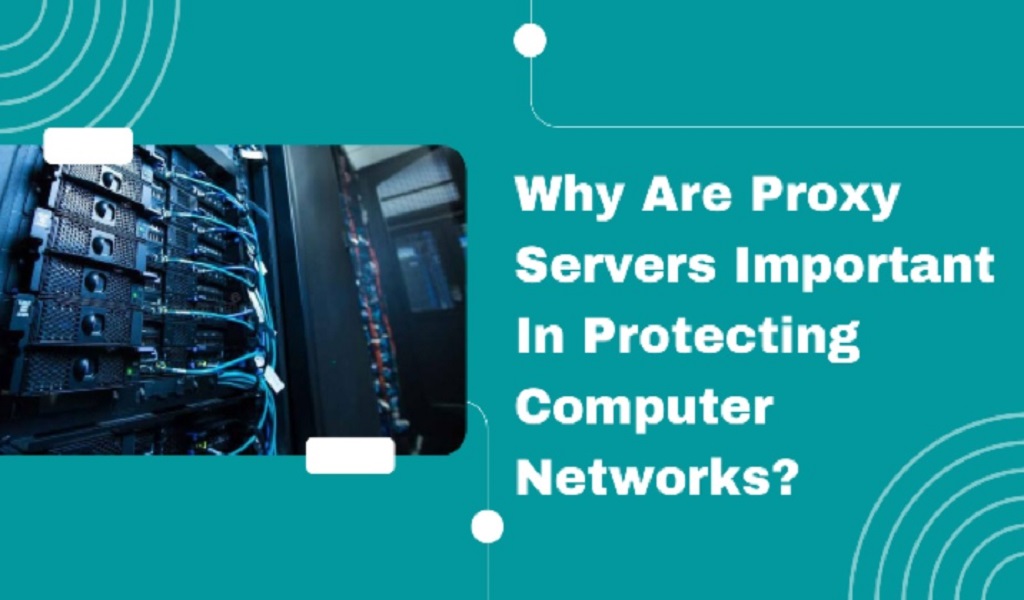One of our major concerns as we use the internet on our computer systems daily should be our safety. While performing tasks, looking for information, or making purchases, we expose our computer’s IP address. It makes it easy for anyone interested to know exactly where we are, who we are, and what we are doing.
Apart from the possible loss of privacy and confidentiality, our systems are vulnerable to attacks by fraudsters. These attacks can damage the security of our computer systems and can cause us to lose sensitive personal and business information. 15 million data breaches were reported by internet users worldwide as of November 2022.
Proxy servers are designed to help protect our computer systems and shield us from cybercrimes. In this article, we will be looking at how residential proxies work and why it is important in protecting our computer systems.
How Does a Proxy Server Work?
A proxy server is an intermediary server that protects our computer systems by hiding or masking our computer’s IP address. When a user sends a query to a website, the query first goes to the proxy server. Then the proxy server sends the query to the destination website, receives the desired response, and then sends it back to the user’s system.
The user’s IP address is replaced with that of the proxy server. Keeping the user anonymous and protected. Residential proxies are connected to a specific physical address, making them even more trusted. This way, you can use the residential IP address to access websites easily, conduct business transactions, make payments and search for information on the internet while staying safe.
Proxy servers keep your computer systems protected in several ways.
- A proxy server can change or mask your IP address. This way, nobody knows who you are or where you are.
- A proxy server can adjust your queries and requests, taking out any sensitive information you may have included before sending it to the destination site.
- A proxy server can encrypt your data, making the information you send or receive unreadably.
Residential Proxies to Protect Your Computer Networks
With your IP address exposed, your computer system is constantly at risk. Sensitive data can be lost, and your system can be infected with malicious software. And so, here are five reasons why residential proxies are important in protecting your computer network.
1. Malware Scanning
Malware is malicious software designed by cyber criminals to disrupt or damage computer systems. Sometimes it is intended to gain unauthorized access to the computer system to steal information.
Sometimes the intention is to block the original user from accessing the system to demand a ransom from them. In this case, it is called ransomware. Residential proxies can filter incoming emails and block those containing malware from reaching your computer.
2. Data Encryption
It is one of the most important features of a proxy server. Data on your computer system can be rendered unreadable by a proxy. It is an extra security layer to ensure that your computer system and the information you wish to keep confidential are not compromised.
Businesses can take advantage of this function to protect data on their systems. A proxy server can be combined with the company’s Virtual Private Network. It allows employees to gain remote access to resources they need while staying protected.
3. Protection from Phishing Scams
Cybercriminals use phishing emails to infiltrate a computer system to steal passwords and other sensitive data. They send out fake messages to their victims to lure them into revealing sensitive personal and financial information.
A phishing email often looks real and can be assumed to be coming from a person or company known to the victim. Residential proxies can protect you from damages resulting from phishing emails by blocking these emails before they reach you.
4. Protection from Hackers
Hackers are everywhere on the internet and are always seeking potential victims. Their goal is to steal personal information such as credit card details, bank account details, and social security numbers. These details are then used to assume the victim’s identity or to commit fraudulent transactions in their name.
Hackers have been known to collect loans, request new credit cards, and make purchases in the names of their victims. A proxy server acts as a firewall between you and the internet. By hiding, masking, or changing your IP address, residential proxies make your computer system inaccessible to hackers.
4. Protection from Distributed Denial of Service(DDoS) Attacks
A DDoS attack occurs when a system is caused to shut down because of overwhelming traffic. The DDoS attack is launched using a network of connected devices.
This network consists of malware-infected computers. They are called bots or zombies.
The malware is what allows the attacker to control these computers remotely. They are then used to bombard the victim’s IP address with requests and queries.
When this happens, the server becomes jammed, and the system’s normal traffic cannot access the service. A proxy server can help protect your computer system from DDoS attacks by blocking any sites with malware from accessing your computer’s server.
Conclusion:
With the rising incidences of cybercrime, proxy servers are gradually becoming necessary. Apart from helping to protect your computer system from harmful emails and links, proxy servers can protect your data through encryption.
Their function in masking your system’s IP address is valuable in helping you stay anonymous. It means that users can enjoy privacy and confidentiality and stay safe. Residential proxies can also be used to enhance internet speed and help save bandwidth. While this doesn’t necessarily offer any protection, it helps save time and money.
Proxy servers can also be used to block access to certain sites. This function can be used to keep employees from distractions at work. And also to prevent minors from harmful content on the internet. On the whole, proxy servers are a wise choice for any individual or business that uses the internet regularly.

















